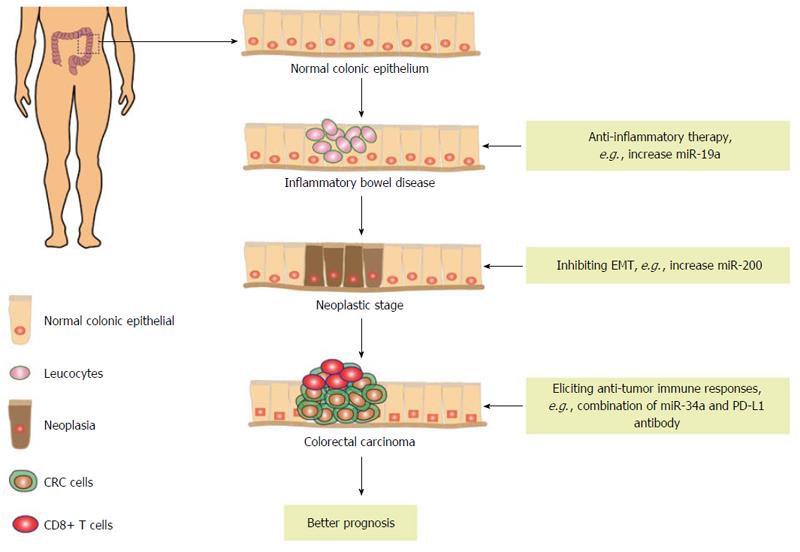Copyright
©The Author(s) 2016.
World J Gastroenterol. Jun 21, 2016; 22(23): 5317-5331
Published online Jun 21, 2016. doi: 10.3748/wjg.v22.i23.5317
Published online Jun 21, 2016. doi: 10.3748/wjg.v22.i23.5317
Figure 2 MiRNA-based immunotherapy in multi-steps colorectal carcinoma tumorigenesis.
Various immune-related miRNAs have been identified that are dysregulated during colorectal carcinoma (CRC) tumorigenesis. These findings can be used to prevent and treat CRC in different pathological stages. In IBD stage, miRNAs and their specific targets are ideally anti-inflammatory targets. For example, overexpression of miR-19a inhibits inflammatory response through targeting TNF-α. During the stage that normal colonic epithelium transforms to neoplasia, miRNA can be utilized to suppress EMT. For example, increased miR-200 reverses EMT and represses the neoplastic cells. In the CRC stage, in addition to traditional approaches, combination of immune-related miRNAs and existing immunotherapeutic strategies can elicit anti-tumor immune responses. For example, combination of miR-34a and PD-L1 antibody can eliminate tumor cells through eliciting tumor-infiltrating CD8+ T cells. The patients with CRC receiving miRNA-based immunotherapy will have better prognosis.
- Citation: Li X, Nie J, Mei Q, Han WD. MicroRNAs: Novel immunotherapeutic targets in colorectal carcinoma. World J Gastroenterol 2016; 22(23): 5317-5331
- URL: https://www.wjgnet.com/1007-9327/full/v22/i23/5317.htm
- DOI: https://dx.doi.org/10.3748/wjg.v22.i23.5317









